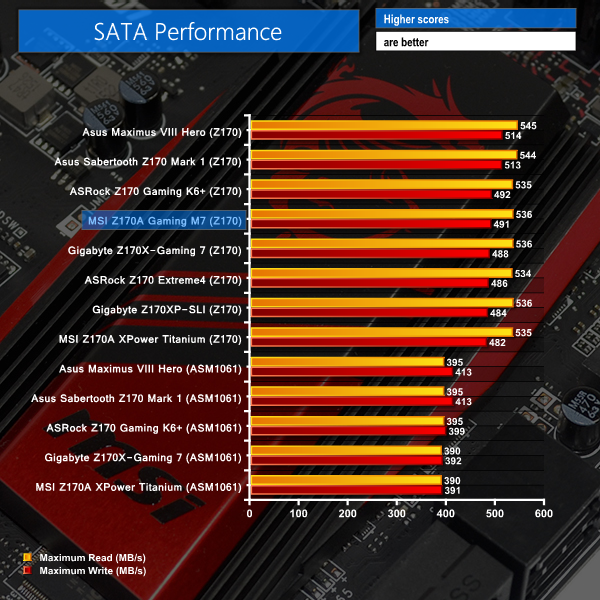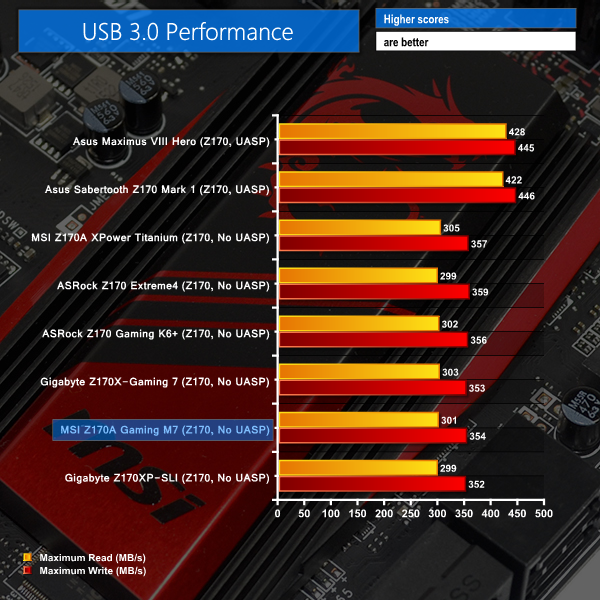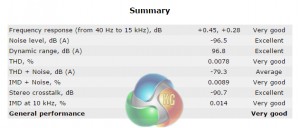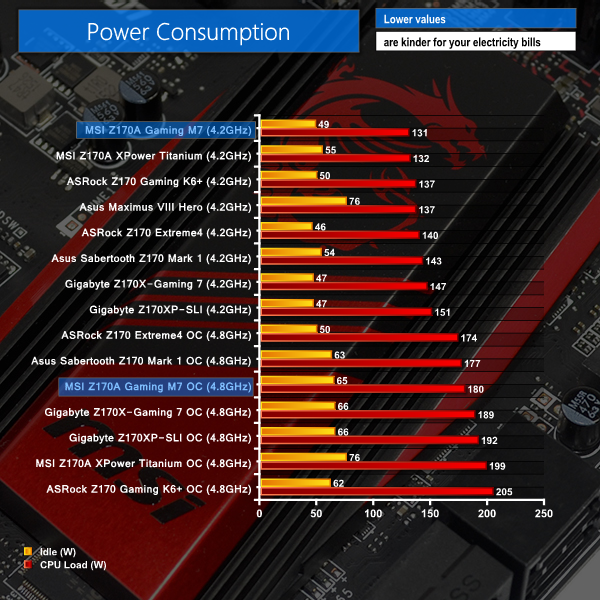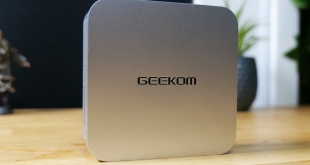SATA
For SATA 6Gb/s testing we use a Kingston HyperX 3K (SandForce SF-2281) SSD.
SATA 6Gbps performance from MSI's Z170A Gaming M7 is not going to bottleneck a relevant SSD. There is no cause for concern with the board's result.
USB 3.0
We tested USB 3.0 performance using the Kingston HyperX 3K SSD connected to a SATA 6Gb/s to USB 3.0 adapter powered by an ASMedia ASM1053 controller. The test system uses Windows 7 with SP1 as the OS.
USB 3.0 performance from the board is about as fast as it gets without a UASP-activating piece of software for our Windows 7 test system. Asus' boards still rule the speed scene for Windows 7 users thanks to the vendor's supplementary UASP-activating software tool.
Higher transfer rates should be expected when using the Windows 8.1 and 10 operating systems thanks to their inclusion of UASP support.
Audio
We use RightMark Audio Analyzer (RMAA) to analyse the performance of the motherboard’s onboard audio solution. A sampling mode of 24-bit, 192 kHz was tested.
Audio performance is rated as ‘Very Good‘ by RMAA. Noise level and Dynamic range are particular strengths thanks to the Realtek ALC1150 audio codec. The pair of Texas Instruments OP1652 op-amps is also useful in driving high-impedance headphones.
Power
We measured the power consumption with the system resting at the Windows 7 desktop, representing idle values.
The power consumption of our entire test system (at the wall) is measured while loading only the CPU using Prime95′s in-place large FFTs setting. The rest of the system’s components were operating in their idle states, hence the increased power consumption values (in comparison to the idle figures) are largely related to the load on the CPU and motherboard power delivery components.
Idle power consumption from MSI's Z170A Gaming M7 is good thanks to the speed at which the Intersil PWM controller drops CPU voltage under lower loads. MSI's sensible MCT CPU voltage level of around 1.2V also benefits the board's load power consumption with the CPU at 4.2GHz.
The overclocked load power consumption should be interpreted with care; the MSI board's CPU voltage drop results in reduced power draw for the system.
 KitGuru KitGuru.net – Tech News | Hardware News | Hardware Reviews | IOS | Mobile | Gaming | Graphics Cards
KitGuru KitGuru.net – Tech News | Hardware News | Hardware Reviews | IOS | Mobile | Gaming | Graphics Cards


